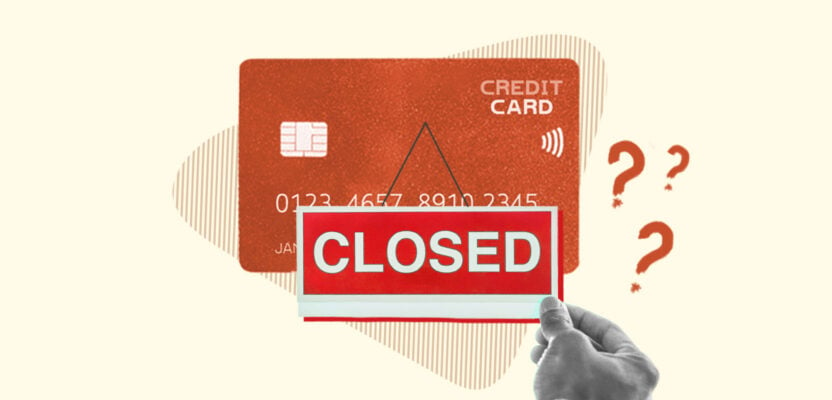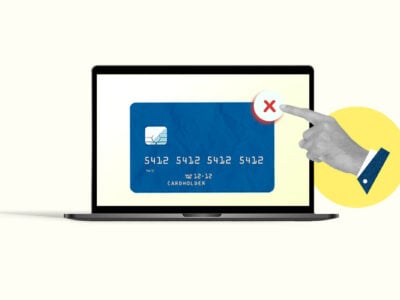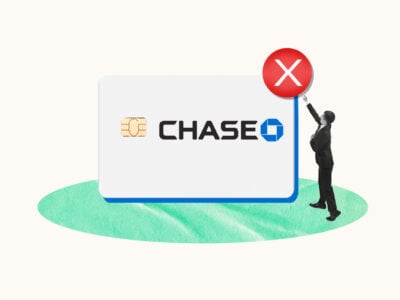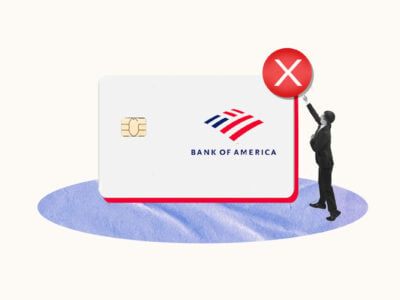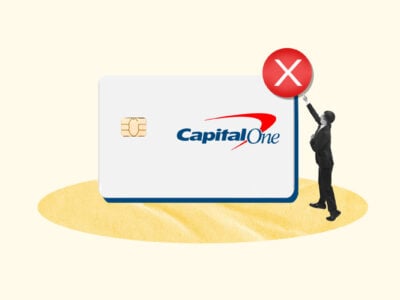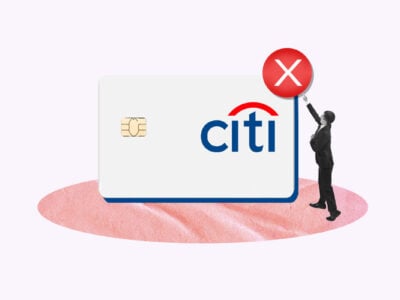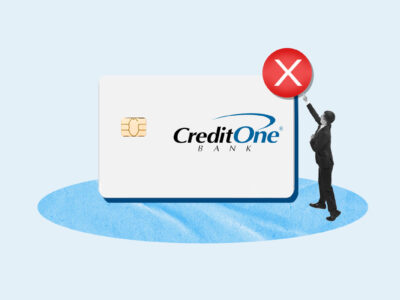Credit cards can be a great financial resource, but sometimes they offer more hassle than help. While canceling a credit card can hurt your credit score, there are also good reasons for closing an account that outweigh the possible harm. Keep reading to find out whether or not closing your credit card is the right choice.
Table of Contents
Why you shouldn’t close your credit card
If you’re on the fence about closing a line of credit, one of the biggest cons to consider is that closing a credit card can hurt your credit score.
Canceling your card can impact the following three factors in your credit score:
- Credit utilization: This is the amount of your available credit that you’re using. Closing a card will reduce how much available credit you have, hurting your score.
- Credit mix: This is the variety of credit accounts you have. If you don’t have any other credit cards, closing your last remaining card will also lower your score.
- Credit age: The older the average age of your credit accounts, the better your score will be. Closing a card won’t immediately affect this because the credit bureaus don’t immediately remove closed accounts from your credit report. However, they will remove the card after it’s been closed for 7–10 years, so this will hurt your credit score in the long term.
Combined, these factors can account for 45%–70% of your credit score, depending on the credit scoring model. So if you’re trying to rebuild your credit or boost your score, you may want to think twice before closing your credit card.
Why you should close your credit card
Although canceling your card could have a serious effect on your credit score, you should go through with it if the financial benefits outweigh the potential threat to your score. Here are the best reasons for canceling your credit card:
Your credit card has a high APR
If you frequently carry a balance on a card with a high APR (annual percentage rate), i.e., a credit card’s interest rate, you’re probably paying more than you’d like in interest.
Before you close your account, first try to negotiate a lower credit card APR with your lender. If your card issuer is unwilling to give you a good APR, then it might be time to close your credit card in favor of one with a lower rate.
Your credit card has a high annual fee
If your credit card annual fee is high and you don’t feel the rewards and benefits are worth the yearly cost, you may want to cancel.
Before you make the closure official, contact your card issuer and ask if they’re willing to waive your annual fee. Some lenders may be willing to cut your fees rather than lose your business entirely.
There are also many good credit cards with no annual fee on the market, so don’t get stuck paying a fee that isn’t worth it.
You keep overspending
Studies show you’re more likely to overspend by using credit cards instead of cash for daily purchases. 1 If you’re struggling to control your finances and having credit cards on hand is causing you to overspend, you might consider closing one or more accounts.
Be cautious, though, if this is the primary reason for canceling your card. Before you officially cancel your card, first consider:
- Putting the card away somewhere you can’t easily reach for it.
- Using a budgeting app to help manage your spending habits.
You’re in the process of divorce
One of the many issues to resolve during a divorce is the matter of joint finances—including joint accounts. If you’re worried about your ex having access to your credit account, it’s reasonable to close your credit card to prevent your former partner from racking up charges and damaging your credit after your divorce.
You join a debt management or debt settlement program
Debt management and debt settlement are two program options to help you pay off debt. Both programs may ask you to close your credit card accounts to clear your credit card debt more easily.
You’re a victim of fraud
If you lose your credit card, have it stolen, or suspect your card information has been compromised, report the theft or misplacement right away and ask your issuer to cancel your card to prevent unauthorized charges.
This won’t actually close your credit account, but will cancel that particular card. The bank will then send you a replacement card with a new number, expiration date, and CVV code.
Alternatives to canceling a credit card
Before you decide once and for all to cancel your card, consider the alternative options:
Put the card away
As we said above, if you’re struggling to keep your spending in check, try keeping your card out of your wallet for a while before committing to closing it for good. Just be careful not to keep it out of sight for too long, as not using your credit card could lead to the account being closed by the issuer.
Negotiate a lower APR
If your primary reason to close your credit card is because of its high APR, you can contact your issuer and try to negotiate a lower interest rate.
Keep in mind that you’re more likely to succeed if you have a good credit score or if your score has recently improved. 2 While it’s not guaranteed the credit card company will say yes, there’s no harm in trying.
You can also check if they offer any credit cards with a 0% APR introductory period, which they might let you upgrade your current card to.
Downgrade to a card without an annual fee
If you’re dealing with a card with a high annual fee, ask your credit card issuer if they offer a fee-free card that you can transition your current card to. Typically, this will mean downgrading, as cards without fees also usually offer less rewards and benefits.
